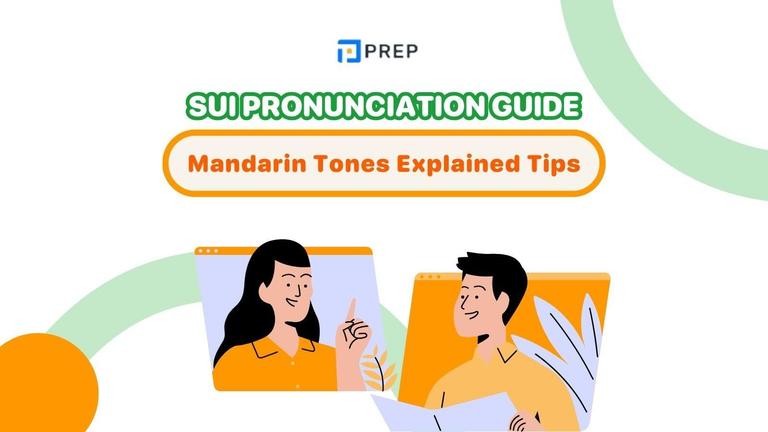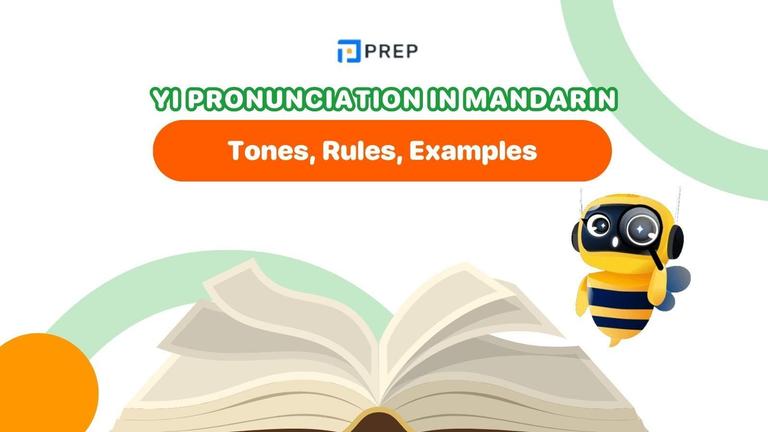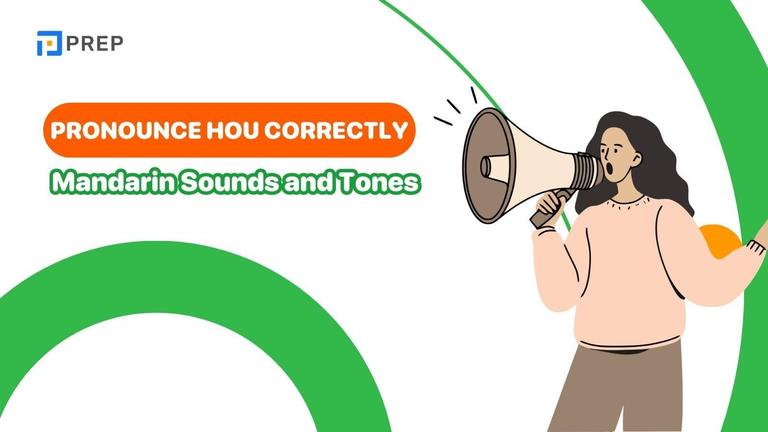Compilation of resources to learn English communication for superior progress!
Where to learn English communication and how to achieve high effectiveness? In today's article, PREP will provide you with common English vocabulary and communication patterns, while introducing reputable learning resources. Let's take a look!
I. Why should you learn English communication?
Learn English communication brings many benefits. English is a necessary requirement in many professions and job positions, so having good English communication skills will expand job opportunities and enable successful competition in the global job market.
Moreover, learn English communication helps us access knowledge from international sources on the Internet, such as books, newspapers, and international research materials. Additionally, we can participate in discussions, international conferences, and communicate with foreigners to effectively explore new cultures and expand knowledge.
Therefore, learn English communication not only opens up good job opportunities but also helps actively access international information sources and expand global social networks. So, where should you learn English communication and how can you learn effectively? Let's explore in the following sections!
II. Some English vocabulary and communication patterns
Firstly, let's learn some common English vocabulary and communication patterns!
1. English communication vocabulary by topic
1.1. Everyday Communication
|
Vocabulary |
Example |
|
wake up |
I set my alarm clock to wake up at 6 a.m. every day. |
|
oversleep |
I overslept this morning and had to rush to get ready for work. |
|
have breakfast/ lunch/ dinner |
It's important to have a nutritious breakfast to start the day off right. |
|
prepare lunch |
I need to prepare lunch for the family before they leave for school and work. |
|
get stuck in traffic jams |
I got stuck in traffic jams on my way to the airport. |
|
take a nap |
I like to take a quick nap after lunch to feel refreshed. |
|
surf the Net/ Internet |
I spent the evening surfing the Internet to find information for my research project. |
|
take a shower |
After a long workout at the gym, I like to take a refreshing shower. |
|
go grocery shopping |
I need to go grocery shopping to buy ingredients for tonight's dinner. |
|
watch the news |
Every morning, I watch the news to stay updated on current events. |
|
stay up late |
I stayed up late last night to finish reading an interesting book. |
1.2. Self-Introduction
|
Vocabulary |
Example |
|
surname/ last name/ family name |
Smith is a common surname in English-speaking countries. |
|
first name |
Her first name is Emily. |
|
middle name |
Jennifer Ann Smith - "Ann" is her middle name. |
|
full name |
His full name is John Christopher Davis. |
|
nickname |
His friends call him "Buddy" as a nickname. |
|
job |
Her job is a teacher at a local school. |
|
position |
He holds the position of CEO in the company. |
|
hometown |
London is her hometown. |
|
hobby |
His hobbies include playing violin and painting. |
|
living/ working motto |
"Work hard, play hard" is her living motto. |
1.3. School
|
Vocabulary |
Example |
|
classmate |
Mark and Emily have been classmates since kindergarten. |
|
homeroom teacher |
Ms. Johnson who is our homeroom teacher, takes care of us and guides us throughout the school year. |
|
principal |
The principal of our school is Mr. Anderson. |
|
timetable/ schedule |
I need to check my timetable to see when my next class is. |
|
make friends |
When I started a new school, I made friends with my classmates. |
|
follow the rules |
It is important to follow the rules of the school to maintain a positive learning environment. |
|
break/ violate the rules |
If you break the rules, there will be consequences. |
|
be good/ bad at |
Hanna is good at playing the piano. |
|
do/ take/ sit an exam |
Tomorrow, we will sit for a math exam. |
|
pass/ fail an exam |
I studied hard and managed to pass the English exam. |
|
graduate (from) |
He graduated from Harvard University with a degree in Economics. |
|
drop out of school |
He decided to drop out of school and pursue a different career path. |
1.4. Company
|
Vocabulary |
Example |
|
department |
I work in the Marketing department of the company. |
|
manager |
Jane is the manager of our department. |
|
co-worker |
I have a great relationship with my co-workers. |
|
workload |
The workload has been quite heavy lately due to multiple projects. |
|
project |
|
|
report |
I need to prepare a report for the quarterly sales meeting. |
|
meet a deadline |
We need to work efficiently to meet the deadline for the project. |
|
miss a deadline |
We missed the deadline for submitting the proposal. |
|
attend a meeting |
I have to attend a departmental meeting this afternoon. |
2. English Communication Phrase Samples by Topic
2.1. Greeting
|
English Communication Phrase Samples by Greeting Topic |
|
Hello! |
|
Good Morning! |
|
Good Afternoon! |
|
Good Evening! |
|
Who are you? |
|
How are you? |
|
Where are you coming from? |
|
Where do you live? |
|
How old are you? |
|
Who are you? |
|
What time is it now? |
|
How long have you been here? |
|
I am fine. Thank you. |
|
Please, sit down. |
|
Sit here. |
|
Wait for me. |
|
Wait a minute. |
|
Wait a moment. |
|
Come with me. |
|
I am happy to make your acquaintance. |
|
I am very pleased to meet you. |
|
Glad to meet you. |
|
Can I help you? |
|
Excuse me. |
|
Please |
|
Good luck. |
|
See you again. |
|
Please come in. |
|
Please sit down. |
2.2. Farewell
|
English Communication Phrase Samples by Farewell Topic |
|
Goodbye. |
|
Goodnight. |
|
See you next week! |
|
I think I should be going. |
|
Well, I gotta go. |
|
See you later. |
|
See you again. |
|
Give me a call sometime. |
|
Have a good day. |
2.3. Self-Introduction
|
English Communication Phrase Samples by Self-Introduction Topic |
|
Please let me introduce myself. I’m Sarah. |
|
May I introduce myself, I’m Owen. |
|
It’s a pleasure to make your acquaintance. My name is Liz. |
|
Hello, It’s very nice to meet you, too. |
|
I’m David. Nice to meet you, too. |
|
Let me introduce my friend, mister Linda. |
|
I’m pleased to meet you. |
|
It’s a pleasure to meet you, Mr Bruno. |
2.4. Expressing Gratitude
|
English Communication Phrase Samples by Expressing Gratitude Topic |
|
Thanks. |
|
Cheers. |
|
Thank you very much. |
|
I really appreciate it. |
|
That’s so kind of you. |
|
Thanks a lot. |
|
It’s my pleasure. |
|
No problem. |
2.5. Apologizing
|
English Communication Phrase Samples by Apologizing Topic |
|
I’m so sorry. |
|
Pardon (me). |
|
Sorry, it was all my fault. |
|
Please excuse my ignorance. |
|
Please accept our sincerest apologies. |
|
My mistake, I had that wrong. |
III. Reputable English Communication Learning Resources
To practice and learn English communication well, you can refer to some websites, apps, courses, and useful materials below!
1. Websites for English Communication Learning
1.1. British Council
The British Council website not only provides effective English learning methods but also offers English communication courses and materials tailored to the needs of students and working professionals.
In addition, the British Council's English communication website provides an enjoyable experience with activities such as listening to music, playing games, and reading entertaining news in the "Study Break" section. The combination of entertainment and learning makes the learning process more enjoyable and engaging.
Link website: https://www.britishcouncil.vn/
1.2. Prepedu.com
Website PREP is one of the best online learning and test preparation platforms today. What sets PREP apart from other websites for learning English is the combination of advanced technology and top-notch instructors.
In particular, PREP offers PrepTalk for learning conversational English with a unique Context-Based Learning method. In your learning journey with PrepTalk's AI, you will experience the following throughout the Context-Based Learning method:
-
Listening to and learning phrases and sentence patterns through humorous sitcom clips instead of sitting through dry theoretical lectures.
-
Testing your knowledge through engaging and fun games. You will practice mimicking the phrases in the clips you just watched, repeating incorrect sentences to improve language skills and reflexes.
-
Practicing speaking in various communication contexts and engaging in flexible two-way interactions with AI artificial intelligence. You will have the opportunity to practice English conversation with AI, receive scoring, and detailed feedback with up to 80% accuracy.
Link website: https://prepedu.com/
1.3. BBC Learning English
BBC Learning English, a website for learning spoken English, provides news, features, and quality lessons from the British Broadcasting Corporation's television and radio programs. The website's content covers various fields, regularly updated and suitable for all proficiency levels, while supporting listening, pronunciation, vocabulary, and grammar practice.
The website's simple interface allows easy access to useful materials, instructional videos, and exercises. Additionally, you can choose flexible learning modes to actively explore language skills and knowledge effectively.
Link website: https://www.bbc.co.uk/learningenglish/
1.4. Oxford Online English
Oxford Online English is a website for learning spoken English, offering a wide range of basic lessons, including vocabulary, pronunciation, as well as courses for IELTS preparation and English for the workplace. The website is designed to be user-friendly, and each lesson is divided flexibly according to learners' needs and proficiency levels.
In addition to the paid courses for advanced and specialized content, there are also some free short lessons for learners to experience.
Link website: https://www.oxfordonlineenglish.com/
2. English Conversation Learning Apps
2.1. Bucha
Bucha is an English conversation learning app that helps learners become proficient in common daily English conversation patterns with various topics. The exercises are designed as multiple-choice games to facilitate learning.
In addition, Bucha provides audio news in English for listening practice and English videos for speaking practice. The app integrates a convenient feature of direct vocabulary lookup and translation within the app.
2.2. PREP
PREP also offers an English conversation learning app for easy learning on mobile devices. When practicing speaking exercises on PREP, you will receive teacher feedback on each error, pointing out specific strengths and weaknesses in each sentence and word. Moreover, learners can have detailed discussions about their work with the evaluator.
Especially, you can practice PrepTalk on the app to access knowledge of English conversation through real-life situations, making it easy to apply in practice and remember for a long time. With PrepTalk, communication improvement becomes more efficient, saving three times the time compared to traditional methods. This method has been proven effective in reviewing for important exams like IELTS and TOEIC. In your learning journey with the AI artificial intelligence of PrepTalk, you will have an excellent experience of learning English conversation through the unparalleled Context-Based Learning method.
2.3. ABA English
ABA English is a communication English learning app that helps you master communication skills and grammar from basic to advanced levels. ABA English uses a completely new learning method through the use of short videos containing a wealth of information for listening, pronunciation, grammar, and many other skills. You will be provided with common grammar structures for daily English communication.
Furthermore, ABA English assigns learners roles as one of the characters in the videos and allows them to practice communication based on pre-prepared dialogues. You can listen to your own voice and compare it with the original audio to identify weaknesses and improve your pronunciation.
2.4. Busuu
Busuu is a communication English learning app that offers lessons designed according to the Common European Framework of Reference for Languages (CEFR). Each course includes 150 different topics, allowing learners to access a wealth of knowledge in pronunciation, vocabulary through audio, podcasts, and PDF materials.
Moreover, you have the opportunity to practice communication skills with native speakers from around the world through the "Conversation" feature. You can interact and receive feedback from native speakers when starting to practice communication. With the "Vocabulary Trainer" feature, you can learn conversational English vocabulary and save new words for further review.
3. English Conversation Courses
3.1. Timmy's Business English
Timmy's Business English conversation course consists of 4 levels from Beginner to Advanced, with each level lasting for 2 months. This course is suitable for busy working individuals with irregular schedules who desire an interactive course and want to improve their English in a short period of time.
The course focuses on standardizing pronunciation based on basic communication topics in the workplace. Students will practice accurate pronunciation and engage in daily conversation situations. Additionally, this Business English conversation course helps students grasp vocabulary through the use of common phrases, and understand grammar to construct sentences accurately.
3.2. PrepTalk and Virtual Speaking Room (VSR) at PREP
The PREP platform offers two highly popular English conversation courses: PrepTalk and Virtual Speaking Room (VSR).
-
For PrepTalk: Students will enhance vocabulary and sentence patterns through entertaining short films, followed by knowledge testing designed in the form of engaging games. Finally, students will experience direct speaking practice with AI artificial intelligence to receive scoring and detailed feedback on various communication topics in life.
-
For Virtual Speaking Room (VSR): You will experience realistic test rounds and receive an estimated IELTS speaking score based on the criteria and scoring scale of the IELTS Speaking test. Speaking Test materials are continuously updated each quarter to provide candidates with an authentic exam-like experience.
During the speaking practice, VSR provides the Time to Think feature to train quick reflexes with questions in a short period of time, and the Note feature to quickly record keywords for answering Part 2 questions. At the end of the test, you will receive detailed feedback on pronunciation, fluency, intonation, as well as grammar and vocabulary used in the speaking task. The AI will then automatically provide suggestions to upgrade your speaking to a band 7.5+ IELTS level.
3.3. Yola EFL Online English
Yola's English communication course focuses on improving language application skills in daily life. The course uses practical activities to help learners apply knowledge naturally and flexibly through group activities, discussions, and presentations. Therefore, learners are encouraged to absorb knowledge, develop critical thinking, and actively express themselves.
The target audience for this English communication course is individuals aged 22 and above who want to improve their English skills for work or travel purposes.
3.4. E-Space Communication English
E-Space Communication English course offers one-on-one personalized tutoring with a teacher to help you practice continuous speaking. Native-speaking teachers will directly detect errors for timely adjustments while also honing pronunciation and quick reflexes throughout the course.
E-Space's curriculum is flexible and adapts to the needs and proficiency levels of learners. Learning communication through real-life situations ensures that learners not only have good speaking abilities but also excel in listening comprehension.
4. English Communication Books
4.1. Ship or Sheep? - Ann Baker
"Ship or Sheep?" is a book from the series of English communication books written by Ann Baker. This book aims to help learners improve their pronunciation skills and differentiate between different English sounds.
The main goal of the "Ship or Sheep?" English communication book is to address pronunciation mistakes and enhance learners' listening comprehension. "Ship or Sheep?" is suitable for English learners at all levels because practicing accurate intonation and developing good listening reflexes will result in effective interaction in English communication.
4.2. Effortless English: Learn to Speak English Like a Native - A.J. Hoge
"Effortless English: Learn to Speak English Like a Native" is an English communication book written by A.J. Hoge. This book focuses on helping learners develop natural and fluent English speaking skills.
The "Effortless English" book is divided into various chapters and subchapters, each explaining a specific aspect of useful English learning methods. Additionally, the book provides theory, examples, and practical exercises to support learners in applying these methods to their learning process.
DOWNLOAD EFFORTLESS ENGLISH (UPDATING)
4.3. Fluent English: Perfect Natural Speech, Sharpen Your Grammar, Master Idioms, Speak Fluently - Barbara Raifsnider
"Fluent English: Perfect Natural Speech, Sharpen Your Grammar, Master Idioms, Speak Fluently" is an English communication book by author Barbara Raifsnider. This book focuses on improving natural and fluent English speaking abilities.
The book helps learners enhance their English speaking skills by using accurate grammar and understanding commonly used idioms in spoken English. "Fluent English" is an excellent choice for intermediate and advanced learners, especially those who want to use the language proficiently in professional situations.
DOWNLOAD FLUENT ENGLISH (UPDATING)
IV. Effective methods to learn English communication
So how do you learn English communication effectively? Let's read the following learning methods by PREP and put them into practice!
1. Set Clear Objectives
Before starting to learn English communication, you need to set clear objectives for yourself. What do you need to improve your English communication skills? Is it for studying abroad, work, business trips, or simply everyday basic communication? When you have specific goals in mind, you will have a clear and effective learning direction. For example:
-
Objective for English communication for studying abroad: Enhance academic English skills, especially focusing on the chosen field of study when studying abroad.
-
Objective for English communication for daily communication: Just learn basic English with common topics in life and practical dialogue situations such as greetings, thank you, apologies, and inquiries.
2. Allocate Time and Practice Regularly
Once you have determined your English communication learning objectives, you need to allocate reasonable study time to maintain regular practice every day. Consider the following time allocation:
-
Learn through materials and communication courses (2 hours): Choose appropriate materials and courses according to your proficiency level to study and practice speaking, pronunciation, vocabulary, and grammar through exercises in books and provided courses.
-
Learn through apps and websites (30 minutes): Utilize your free time or before sleep to both study and entertain yourself through reputable apps and websites. Play vocabulary games, watch English conversation videos, and stay updated with English news.
3. Seek Opportunities for Practice
To learn English communication effectively, you need to seek opportunities for regular communication practice. You can join English clubs, attend English seminars or discussions, and participate in international cultural exchange programs. Doing so will expand your social connections with global friends and give you the chance to engage in English conversations with native speakers.
PREP has compiled comprehensive resources for learning reputable English communication and guides on how to learn English communication to help you progress quickly. Save this information to succeed in English communication!

Hi I'm Chloe, and I am currently serving as an Product Content Administrator at Prep Education. With over five years of experience in independent online IELTS study and exam preparation, I am confident in my ability to support learners in achieving their highest possible scores.
Comment
Premium content
View allPersonalized roadmap
Most read












